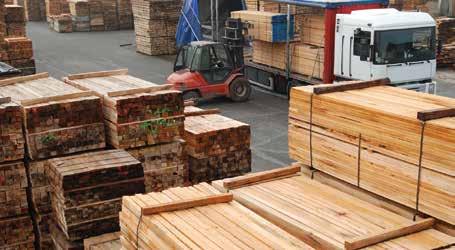
1 minute read
MORE WOOD IN CONSTRUCTION ESSENTIAL TO NET ZERO
In its latest report – ‘Seeing the wood for the trees: the contribution of the forestry and timber sectors to biodiversity and net zero goals’ – the EAC has recommended increasing wood in construction and expanding UK productive forestry to help achieve net zero by 2050.
Over the last year, MPs have heard from a range of industry experts on the best ways to scale up a sustainable, resilient domestic timber sector. The inquiry comes following the Climate Change Committee’s (CCC) recognition of timber as crucial to decarbonising the built environment. The EAC has called for greater use of timber in construction, stating the government should ‘support’ the UK sawmilling sector to transition towards ‘producing a higher percentage of construction grade timber products and engineered timber’.
This is due to timber’s carbon storage potential as a construction product, and its essential role in substituting high carbon materials such as steel and concrete in the built environment.
The EAC echoed the recent All Party Parliamentary Group (APPG) for the Timber Industries report, calling on the government to improve supply resilience by increasing UK productive forestry through streamlined planting and commercial softwood species targets. The report notes that domestic production is complementary to imports of timber from forest economies like
Sweden, Finland, and Latvia, which are essential to meeting long-term demand and increasing the use of timber in construction. Throughout the report, the EAC calls for the government to publish its timber in construction roadmap as soon as possible’ to outline how we can expand low-carbon timber construction in the UK.
TDUK CEO and CTI Director, David Hopkins, said: “It is great to see MPs in the Environmental Audit Committee once again acknowledge the pivotal role timber must play in decarbonising construction in the UK. The committee is right to argue for increased domestic timber production, with productive forests in the UK lagging well behind other European states. However, as we have mentioned in our latest APPG report, increasing UK timber supply should be incentivised to complement, rather than replace, imported timber as UK supply alone cannot match demand, even in the medium/long term.
“Additionally, the UK plays a positive role as a net importer of timber, with effective demand-side regulations promoting forest growth around the world. The Environmental










